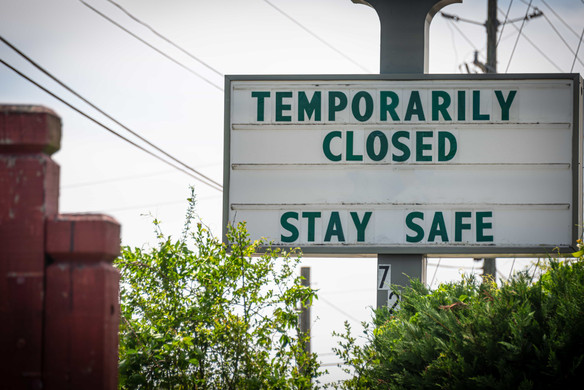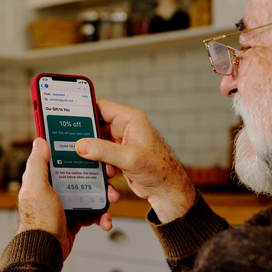Table of contents
With COVID-19 concerns creating drastic and continually changing restrictions on indoor dining, restaurants have taken a major hit from the pandemic. More than 110,000 restaurants have shuttered their doors permanently or long term in 2020, and many of those that remain open have been relying on outdoor dining to sustain their revenue. Others have seen little ROI from outdoor dining to date, and find their options for staying open becoming limited as the pandemic continues its impact across the country.
Facing these unfortunate circumstances, many restaurateurs are wondering whether entering a hibernation phase is feasible for their business. While not an easy decision to make, it’s possible that closing temporarily — and perhaps biding their time until a vaccine is widely distributed — can help restaurants avoid closing down for good.
Here are some of the considerations restaurateurs should have in mind as they figure out what’s best.
Key considerations
Relief opportunities: Some states have offered pandemic-related relief to small businesses. As restaurateurs start modeling out various scenarios and cost analyses to see if hibernation makes more sense than staying open, they should look to their state government websites to find out whether they are eligible for any funding that can help them stay in operation. For example, owners of bars and restaurants in Kentucky can now apply for $10,000 grants and D.C. owners are eligible for grants of between $10,000 and $50,000 per restaurant. California is also developing a program that will offer grants of up to $25,000 for small businesses (to be distributed in 2021).
Costs of relying on outdoor dining: With or without any outside funding, restaurant owners are going to great lengths to keep diners comfortable as COVID restrictions mount and outdoor temperatures drop. Investing in things like outdoor dining bubbles, pavilions, and heat lamps can help restaurants stay open and serve more customers in times of restricted indoor dining. But, those items also create new and ongoing costs to the business — such as utilities, building supplies, enhanced cleaning, and staffing for any outdoor structures.
Reduced customer and order volume: All of the above-mentioned investments come with no guarantees that customers will eat outside during the colder months, especially in pandemic conditions. And with curfews imposed in some locations, many restaurants are closing earlier than usual, resulting in capacity for fewer reservations or tables they can turn per night. If additional pandemic restrictions (such as indoor dining bans) lower a restaurant’s revenue potential even further, the cost savings of temporary hibernation may prove more cost effective than the losses of continuing to operate.
Rent negotiation opportunities: Commercial landlords may be open to temporarily forgiving or lowering rents during a winter hibernation period. If landlords recognize that a restaurant may permanently close if they don’t close temporarily, they may be more willing to negotiate flexible terms (given that pausing or reducing rents may be more favorable for landlords than filling costly vacancies). Research rent decreases in your city and neighborhood, and look for comps, to prepare yourself for a conversation with your landlord to request a rent decrease.
Option of going takeout- or delivery-only: If pausing rent payments isn’t a possibility, restaurant owners may look into ways to reduce overhead costs before entering a full-on hibernation. Temporarily operating as a ghost kitchen, which is a stand-alone food-production facility for delivery or takeout orders, is one way to stay open with no waitstaff or other onsite resourcing. While it comes with the added challenges of marketing the business in an online-only manner, this option should be familiar to many restaurant owners, since many cities only allowed restaurants to offer takeout or delivery at the start of the pandemic. For restaurants that did well during that period, the potentially narrowed margins of running the business as a ghost kitchen may be favorable to entering hibernation.
Introducing seasonality to the business: Many restaurants do a huge amount of their business in the summer months and expect winters to be slow; others plan all year for a booming winter. Restaurants that have always relied on year-round indoor dining may consider shifting to a seasonal business model. If so, they can start by thinking up ways to use the hibernation period to optimize sales once the restaurant reopens, such as embracing seasonal promotions, redesigning the restaurant facility for warm-weather business, launching new marketing and brand strategies, and pivoting to the use of different raw materials (such as using more seasonal produce or locally sourced ingredients). There may also be ways to use the restaurant facility to generate revenue through the hibernation phase, such as offering it as a private event venue, renting it out to a pop-up restaurant, or using it to host virtual events. That said, restaurateurs should be mindful of the risks of allowing their spaces to be used and occupied by others during the pandemic.
Length of hibernation period: Will the restaurant still be relevant to customers come spring? Will staff want their jobs back? The point of hibernation is to close temporarily to avoid closing forever, but if the restaurant has never operated in a seasonal way, then reopening may take more than just turning the lights back on. Restaurateurs need to know their customers and trust that they will come back in the spring. If coming out of hibernation might be just as difficult as opening a new restaurant, owners may not be up for that level of challenge.
Planning for uncertainty ahead
For Square sellers, adapting to pandemic conditions has meant taking some serious risks with their budgets. Restaurateur Leyla Khanahmad of The Black & Caspian in Chicago, who uses Square at her establishment, told us that despite how unpredictable the weather is in her area, she’s hopeful that her team’s investment in a large, heated outdoor dining patio will be a success.
“A lot depends on how the weather is going to be,” said Khanahmad of her restaurant’s prospects for the winter ahead, noting that temperatures could fall below zero this winter. “It’s going to be really difficult to attract people. But, again, this is a risk that we’re taking, this is an investment that we’re making, hoping it will generate ROI. And I think as long as we make it safe and our patio follows a solid protocol, I think we’re going to be able to stay in business.”
“We’re socially distant, we’re still safe, but people are craving that restaurant experience,” added Khanahmad.
Ultimately, taking the pandemic seriously means considering all possibilities for the restaurant-owner experience this year — including the possibility that a hibernation phase may not be quick to wake up from. Restaurateurs are wise to run extensive cost analyses and discuss their options with peers to determine what makes the most sense for them for the uncertain future ahead.
![]()












